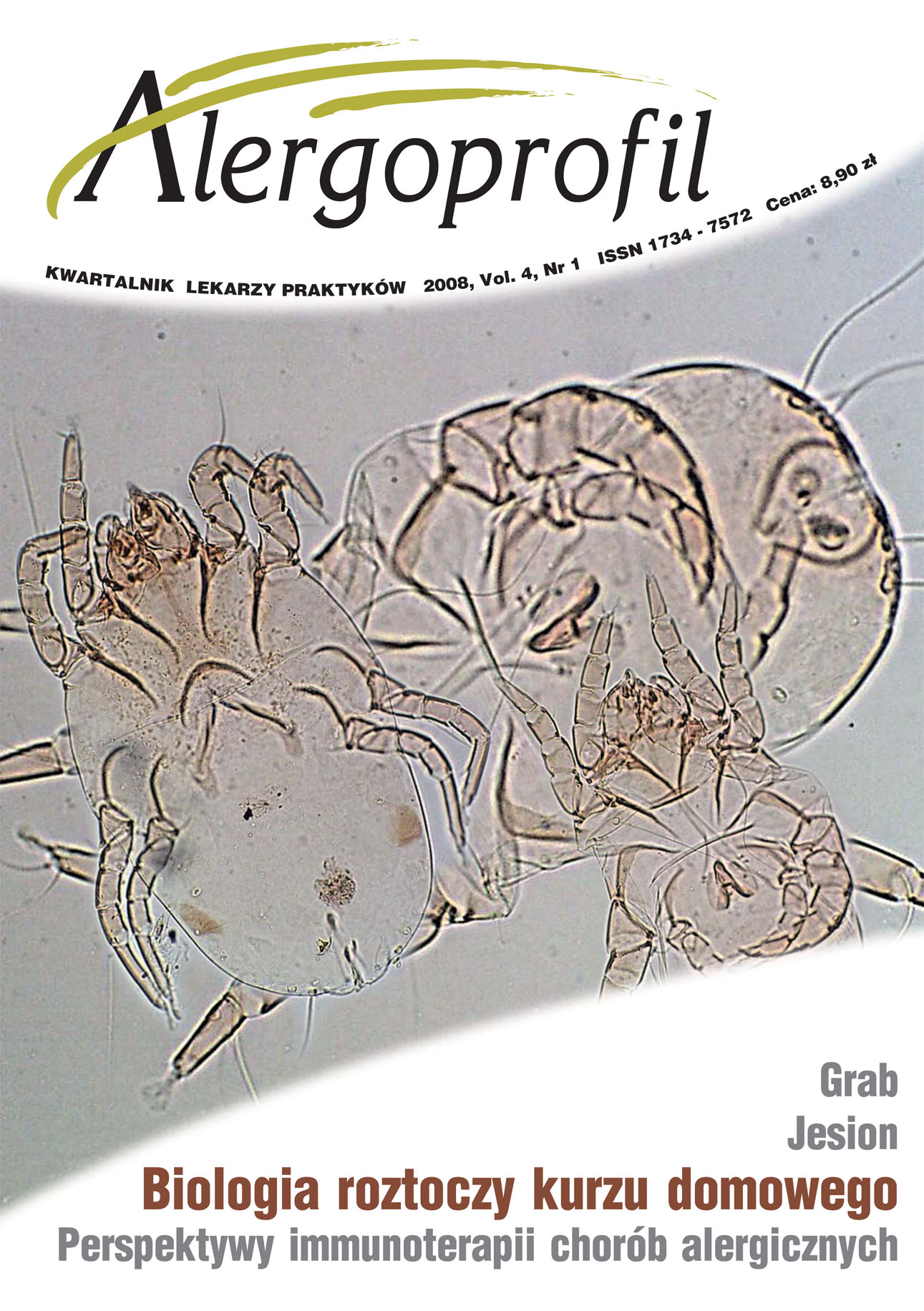Nasal saline irrigations in laryngology and alergology
Main Article Content
Abstract
Treatment strategies for the nose and sinus disease often include the use of nasal saline irrigations. The author presents his own experience and literature review concering the role of nasal saline irrigations in practice. The topical saline could be used as a treatment adjunct for the symptoms of chronic rhinosinusitis that enhances the effect of treatment, improves the quality of life and is well tolerated.
Downloads
Article Details
Copyright: © Medical Education sp. z o.o. This is an Open Access article distributed under the terms of the Attribution-NonCommercial 4.0 International (CC BY-NC 4.0). License (https://creativecommons.org/licenses/by-nc/4.0/), allowing third parties to copy and redistribute the material in any medium or format and to remix, transform, and build upon the material, provided the original work is properly cited and states its license.
Address reprint requests to: Medical Education, Marcin Kuźma (marcin.kuzma@mededu.pl)
References
2. Rapiejko P.: Alergeny pyłku roślin. Medical Education, Warszawa 2008.
3. Rapiejko P., Stankiewicz W., Szczygielski K., Jurkiewicz D.: Threshold pollen necessary to evoke allergic symptoms. Otolaryngol. Pol. 2007, 61(4): 591-594.
4. Alergiczny nieżyt nosa i jego wpływ na astmę (Raport ARIA). Medycyna Praktyczna 2002, 7: 1-263.
5. Tamooka L.T., Murphy C., Davidson T.M.: Clinical study and literature review of nasal irrigation. Laryngoscope 2000, 110: 1189-1193.
6. Talbot A., Herr T., Parsons D.: Mucociliary clearance and buffered hypertonic saline solution. Laryngoscope 1997,107(4): 500-503.
7. Beek W., Keles N., Graamans K., Huzing E.: Physiologic and hypertonic saline solutions impair ciliary activity in vitro. Laryngoscope 1999, 109(3): 396-399.
8. Wormald P.J., Oates L., Hawke L., Wong I.: A comparative study of three methods of nasal irrigation. Laryngoscope 2004, 114: 2224-2227.
9. Friedman M., Vidyasagar R., Nison J.: A randomized, prospective, double-blind study on the efficacy of Dead Sea salt nasal irrigations. Laryngoscope 2006,116: 878-882.
10. Tano L., Tano K.: A daily nasal spray with saline prevents symptoms of rhinitis. Acta Oto-Laryngologica 2004, 124(9): 1059-1062.
11. Rapiejko P., Wojdas A., Jurkiewicz D.: The Influence of the isotonic solution of sea water (Marimer) application on nasal mucosa in allergic rhinitis sufferers. Pol. J. Environ. Studies 2007, 16,5C: 530-534.
12. Rapiejko P., Jurkiewicz D.: Wpływ stosowania roztworu izotonicznego wody morskiej (Marimer) na objawy chorobowe oraz stan błony śluzowej nosa u chorych z uczuleniem na alergeny pyłku roślin. Alergoprofil 2007, 3(4): 29-35.
13. Harvey R., Hannan S.A., Badia L., Scadding G.: Nasal saline irrigation for the symptoms of chronic rhinosinusitis (Review). Cochrane Database of Systemic Reviews 2007, 3, CD006394, DOI: 10.1002/14651858. CD006394.pub2.
14. Klossek J.M., Chidac C., Serrano E.: Current position of the management of community – acquired acute maxillary sinusitis or rhinosinusitis in France and literature review. Presse Med. 2005, 34(22): 1755-63.
15. Tan R., Spector S.: Pediatric sinusitis. Curr. Allergy Asthma. Rep. 2007, 7(6): 421-6.

